Our Procedures
Surgical weight loss procedures, also known as bariatric surgery, are medical interventions designed to assist individuals in achieving significant and sustained weight loss.
Weight Loss Procedures

Gastric Sleeve
This is a complex surgery that is performed by laparoscopy or minimally invasive with 4-5 small incisions of 5 and 10 mm, lasts approximately 60 minutes, is performed with general anesthesia, has a restrictive and poor absorptive effect, and is the main indication for gastroesophageal reflux disease.
It is important to follow a strict eating plan at least 4 weeks prior to surgery,
as well as a postoperative diet that consists of 3 phases, the first and most important phase 1 will be based on liquids, which will progress as the post-surgical time increases, this must be accompanied by a bread of physical activity so that the results are optimal.
How do I know if I am a candidate for gastric sleeve surgery? The medical indication to perform gastric sleeve weight loss surgery is all patients who are between 18 and 65 years of age, who have a BMI greater than 35, or if it is a BMI between 30-35 who have any comorbidity related to obesity such as systemic arterial hypertension, diabetes mellitus or obstructive sleep apnea syndrome.
Advantages
- Weight loss is generally faster with the Sleeve than with Gastric Banding and almost equal to that of Gastric Bypass.
- There is no implantable band device, so slippage and erosion are not a risk.
- Short recovery time.
Disadvantages
- Sleeve gastrectomy is not adjustable or reversible.
- Complication risks are slightly higher than with the Band and almost equal to that of gastric bypass.

Roux-en-Y Gastric Bypass
This is a complex surgery that is performed by laparoscopy or minimally invasive with 4-5 small incisions of 5 and 10 mm, lasts approximately 60 minutes, is performed with general anesthesia, has a restrictive and poor absorptive effect, and is the main indication for gastroesophageal reflux disease.
It is done to help you lose excess weight and reduce your risk of potentially life-threatening weight-related health problems, such as: Gastroesophageal reflux disease, heart disease, high blood pressure, obstructive apnea sleep, type 2 diabetes mellitus, stroke.
How do I know if I am a candidate for gastric sleeve surgery? If your body mass index is 40 or more (extreme obesity), if your body mass index is 35 to 39.9 (obesity), and you have a serious weight-related health problem, such as type 2 diabetes mellitus , high blood pressure, or severe sleep apnea. In some cases, you may qualify for certain types of weight loss surgery if your body mass index is 30 to 34 and you have serious weight-related health problems.
But gastric bypass is not for anyone who is severely overweight.
Advantages
- Average weight loss is greater than with other procedures, such as Laparoscopic Adjustable Band and Sleeve Gastrectomy.
- Co-morbidities — conditions related to excess weight, such as type 2 diabetes and hypertension — may begin to improve even before you lose much weight.
- Weight loss is more rapid than with the Lap Band, if you follow dietary guidelines.
- RYGB doesn’t require any devices to stay inside you.
Disadvantages
- Post-operative healing: Surgery is a bit longer because the digestive organs are rerouted. There is more pain, and it takes longer to heal from this procedure than from a Lap Band.
- The procedure reduces your ability to absorb nutrients and calories; you will need to take vitamin supplements for the rest of your life.
- You will need to follow the low-sugar and low-starch diet guidelines following surgery, since you may experience discomfort, including vomiting and diarrhea.
- This procedure is not reversible.
- Complications include the possibility of leaks, bleeding, blood clots, infection, and blockages.
Bariatric surgery is a set of procedures designed to aid weight loss by modifying the digestive system.
Evaluation is based on factors such as body mass index (BMI), medical history, and is conducted by a medical team.
Recovery varies but typically involves an initial liquid diet and a gradual transition to solid foods.
Most patients can resume normal activities after recovery, with dietary and exercise modifications.
Weight loss varies, but many patients experience significant weight loss in the first few months.
Frequently Asked Question From Clients
Contact Us Today And Find Out Why Thousands Trust Us.
Our Company
- info@wlsbariatrics.com
- +52 (664) 517 22 52

